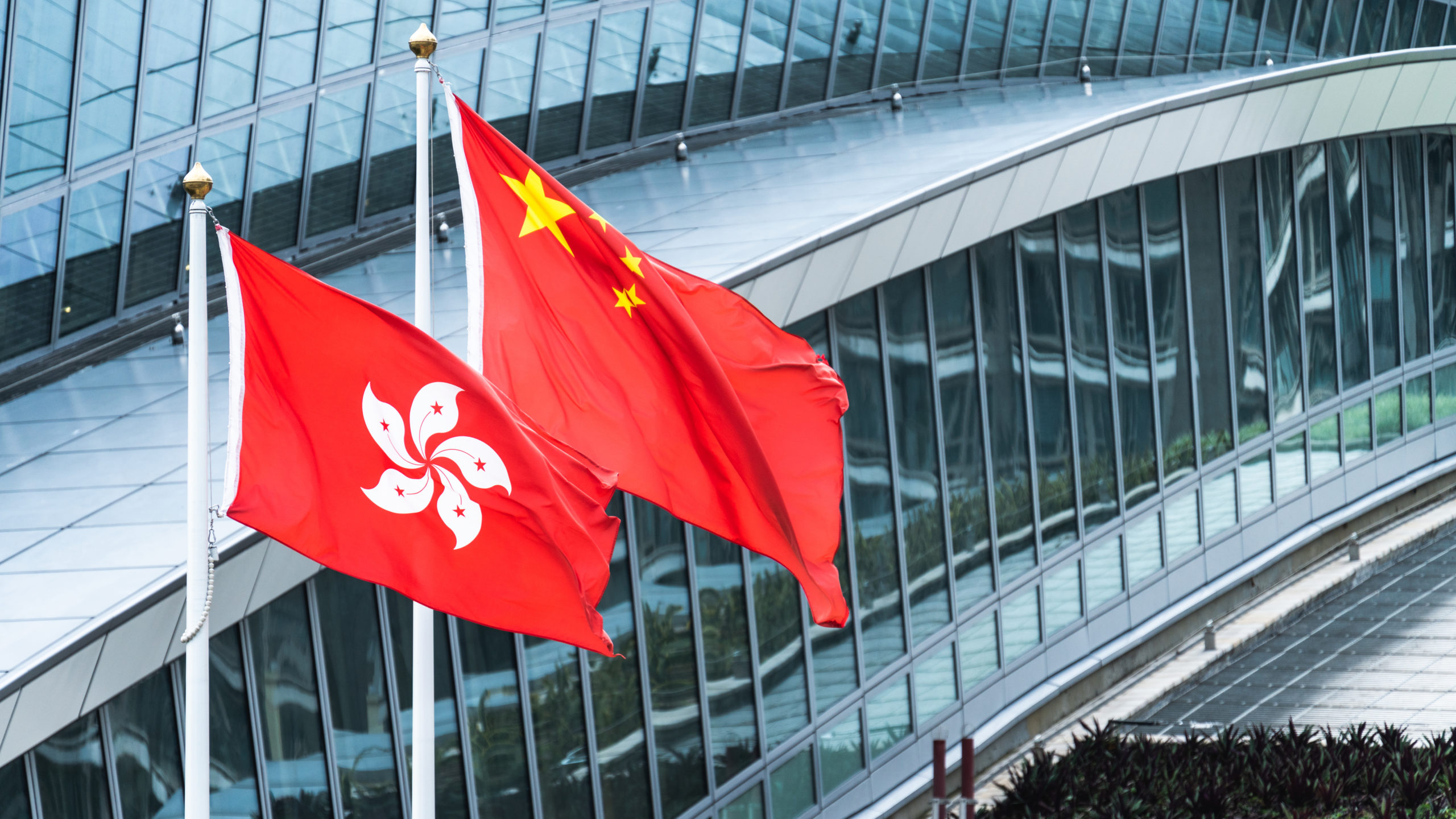Beijing to deliver death blow to ‘one country, two systems’ with Hong Kong law

The Two Sessions, China’s annual series of political meetings to approve and discuss new laws and give government work reports, kicked off today. The meetings usually take place in March but were delayed this year because of COVID-19. (See our explainer for more on the Two Sessions, Xinhua News Agency’s bland report about today, or MacroPolo’s excellent directory of China’s leaders for more about the people meeting in Beijing.)
The first event was the opening of the meeting of the National Committee of the Chinese People’s Political Consultative Conference (CPPCC), an “advisory” body that makes proposals and suggestions to the government. Its members include entrepreneurs, filmmakers, and other people who are not Communist Party members.
The National People’s Congress (NPC), which starts its meetings tomorrow, is the “parliament” that passes laws, although the Western press often calls the NPC a “rubber stamp” parliament, a characterization difficult to avoid because the NPC almost never rejects any legislation put before it: The real decisions are made behind closed doors at various Communist Party meetings, the most important of which is the National Party Congress, which is held every five years.
Usually, news about Two Sessions meetings is boring. Not this year. Officials including Wāng Yáng 汪洋, a member of China’s top leadership body, the seven-man Politburo Standing Committee, announced that Beijing would be passing new national security laws that will give the Communist Party more control over political activity and freedom of expression in Hong Kong.
“Formulating a national security legislation for Hong Kong shows that the central government is determined to safeguard its sovereignty over the special administrative region,” explained the nationalist rag Global Times, “and will protect the territory from falling into the hands of the hostile forces at all cost, especially after the Hong Kong SAR government has been weakened in the past years fending off growing risks caused by local secessionists and foreign intervention.”
Washington, D.C., is the target of some of the messaging: “The Chinese government is taking Hong Kong as an example, sending a clear message to the U.S. on issues related to China’s national sovereignty and security, and will never yield,” according to a “senior expert close to the central government on Hong Kong affairs” cited by the Global Times. “It’s also a strong signal to other separatist forces abroad.”
The law will be passed soon. A different Global Times article says the new national security law in Hong Kong “may be completed within half a year, or even sooner.” State news agency Xinhua says (in Chinese) that it is “imperative and urgent to establish and improve Hong Kong’s national security legal system and enforcement mechanism.”
What does this mean?
The Hong Kong government has been unable to suppress a protest movement that began almost a year ago, and unable to pass national security laws that would give it the legal pretexts to stamp the movement out. So now Beijing is going over the Hong Kong government’s head.
Today marks the death of the “one country, two systems” formula: If Beijing can make legislation for Hong Kong without the participation of the Hong Kong government, the Special Administrative Territory has no meaningful autonomy. Naturally, state media defends the move as actually being “crucial protection” of “one country, two systems” (in Chinese).
“One country, two systems” has been on its deathbed for some time already. In October 2018, we pronounced the death of press freedom in Hong Kong when the government refused to renew the visa of the Financial Times’ Asia News Editor, Victor Mallet. Since then, the environment for civil society activity, freedom of expression, and political activism has deteriorated by the month, despite a massively popular protest movement.
We can expect vigorous protests from Hongkongers. Activist Joshua Wong (黃之鋒 Huáng Zhīfēng) today tweeted:
HKers will not scare off in the face of wolf warrior policy on HK. We will continue our international advocacy and tell the truth of China’s authoritarianism to the world! Deep down HK protesters know, we insist on not because we are strong, but because we have no other choice.
There is already a response from Washington: “U.S. senators are introducing a bipartisan bill that would sanction Chinese Party officials and entities who enforce the new national-security laws in Hong Kong, and the legislation also would penalize banks that do business with the entities,” reports the Wall Street Journal (paywall).
Sen. Chris Van Hollen (D., Md.) and Sen. Pat Toomey (R., Pa) said they had been working on the bill, which aims to defend human rights in Hong Kong and pressure China to preserve the territory’s special status. They said Thursday’s developments made the legislation more urgent, and they will press Senate leaders to take up the matter quickly.
How will financial markets react?
Hong Kong’s economy has suffered after nearly a year of standoffs in Hong Kong’s streets between police and protesters, but its financial markets have remained strong.
But this move will further reduce investor confidence in rule of law in Hong Kong, which will affect the territory’s economy and the health of its stock market. Slowly but surely, the gloss is fading from one of the cities known as the Pearl of the Orient.
Further reading:
- China moves to impose Hong Kong security law, stirring outrage / Bloomberg (porous paywall)
- China to impose sweeping national security law in Hong Kong, bypassing city’s legislature / Washington Post (porous paywall)
- Push for Hong Kong national security legislation builds at ‘two sessions’ / SCMP
- China moves to impose new Hong Kong security laws, tightening its control / NYT (porous paywall)
- Rule of law under attack in Hong Kong / The China Project






